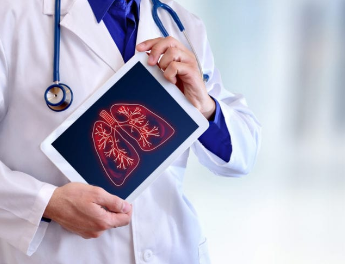
Best Pulmonologists In Seawoods
A pulmonologist is a medical specialist who focuses on diagnosing, treating, and managing diseases and conditions affecting the respiratory system. This includes the lungs, airways, and other structures involved in breathing. Pulmonologists play a crucial role in helping patients with a wide range of respiratory disorders, from common issues like asthma to more complex conditions like pulmonary fibrosis or lung cancer.
When to See a Pulmonologist?
You may need to consult a pulmonologist if you experience symptoms such as:
1. Chronic Cough
2. Shortness of Breath
3. Wheezing
4. Chest Pain
5. Frequent Respiratory Infections
6. Coughing Up Blood (Hemoptysis)
7. Unexplained Fatigue
8. Difficulty Sleeping or Snoring
Common Causes of Pulmonary Disorders
• Smoking – The leading cause of chronic obstructive pulmonary diseases (COPD), lung cancer, and other respiratory conditions.
• Air Pollution – Long-term exposure to polluted air can lead to chronic respiratory conditions.
• Infections – Viral and bacterial infections can lead to diseases like pneumonia and tuberculosis.
• Genetic Factors – Inherited conditions like cystic fibrosis or alpha-1 antitrypsin deficiency can contribute to respiratory issues.
• Occupational Hazards – Exposure to harmful chemicals or dust in certain professions can lead to lung disease.
Prevention and Risk Factors
• Quit Smoking – The most significant factor in reducing your risk of respiratory disease.
• Exercise – Regular physical activity helps maintain lung function and overall health.
• Healthy Diet – A balanced diet rich in antioxidants and vitamins supports lung health.
• Avoid Pollution – Limiting exposure to pollutants and using air purifiers indoors can help protect your lungs.
• Vaccination – Vaccines like the flu shot and pneumococcal vaccine can prevent respiratory infections.
Conditions Treated by Pulmonologists
Some of the common and complex respiratory conditions managed by pulmonologists include:
1. Asthma
A chronic condition that inflames and narrows the airways, causing episodes of wheezing, breathlessness, and coughing.
2. Chronic Obstructive Pulmonary Disease (COPD)
A progressive disease that includes chronic bronchitis and emphysema, leading to difficulty in breathing.
3. Sleep Apnea
A sleep disorder where breathing repeatedly stops and starts, often treated with diagnostic sleep studies like polysomnography.
4. Interstitial Lung Disease (ILD)
A group of disorders that cause scarring of lung tissue, affecting breathing and oxygen exchange.
5. Lung Infections
Conditions like pneumonia, tuberculosis, or fungal infections that require specialized care and treatment.
6. Pulmonary Hypertension
High blood pressure in the arteries of the lungs, which can strain the heart over time.
7. Lung Cancer
Diagnosis, staging, and management of lung cancer using advanced imaging and biopsy techniques.
8. Smoking-Related Diseases
Smoking can lead to various respiratory conditions, and pulmonologists assist in both managing these diseases and supporting smoking cessation.
Advanced Diagnostic Tools and Treatments
Modern pulmonology relies on advanced diagnostic tools and treatments to provide accurate diagnoses and effective care. The best pulmonologists in Seawoods utilize state-of-the-art technology to ensure optimal patient outcomes. Here are some of the advanced tools and techniques they use:
1. Diagnostic Tools
Pulmonary Function Tests (PFTs): Measure lung capacity and airflow.
Chest X-rays and CT Scans: Provide detailed images of the lungs.
Bronchoscopy: A procedure to visualize the airways and collect tissue samples.
Sleep Studies: Diagnose conditions like sleep apnea and other sleep-related disorders.
Arterial Blood Gas (ABG) Analysis: Measures oxygen and carbon dioxide levels in the blood.
2. Treatment Options
Inhalers and Nebulizers: Deliver medication directly to the lungs.
Oxygen Therapy: Supports patients with chronic respiratory conditions.
Pulmonary Rehabilitation: A structured program to improve lung function and quality of life.
Medications: Includes corticosteroids, bronchodilators, and antibiotics.
Minimally Invasive Procedures: Such as endobronchial ultrasound (EBUS) for accurate diagnoses.
Surgical Interventions: For conditions like lung cancer or severe emphysema.
Conclusion
If you are dealing with a respiratory condition or experiencing symptoms like chronic cough, shortness of breath, or chest pain, don’t wait contact Dr. Tanay Sinha, one of the Best Pulmonologists In Seawoods, today. Dr. Sinha offers expert care, comprehensive diagnostic testing, and personalized treatment plans to help you manage your lung health and improve your quality of life. Whether you need help with asthma, COPD, lung cancer, or other respiratory issues, Dr. Sinha is here to help.
